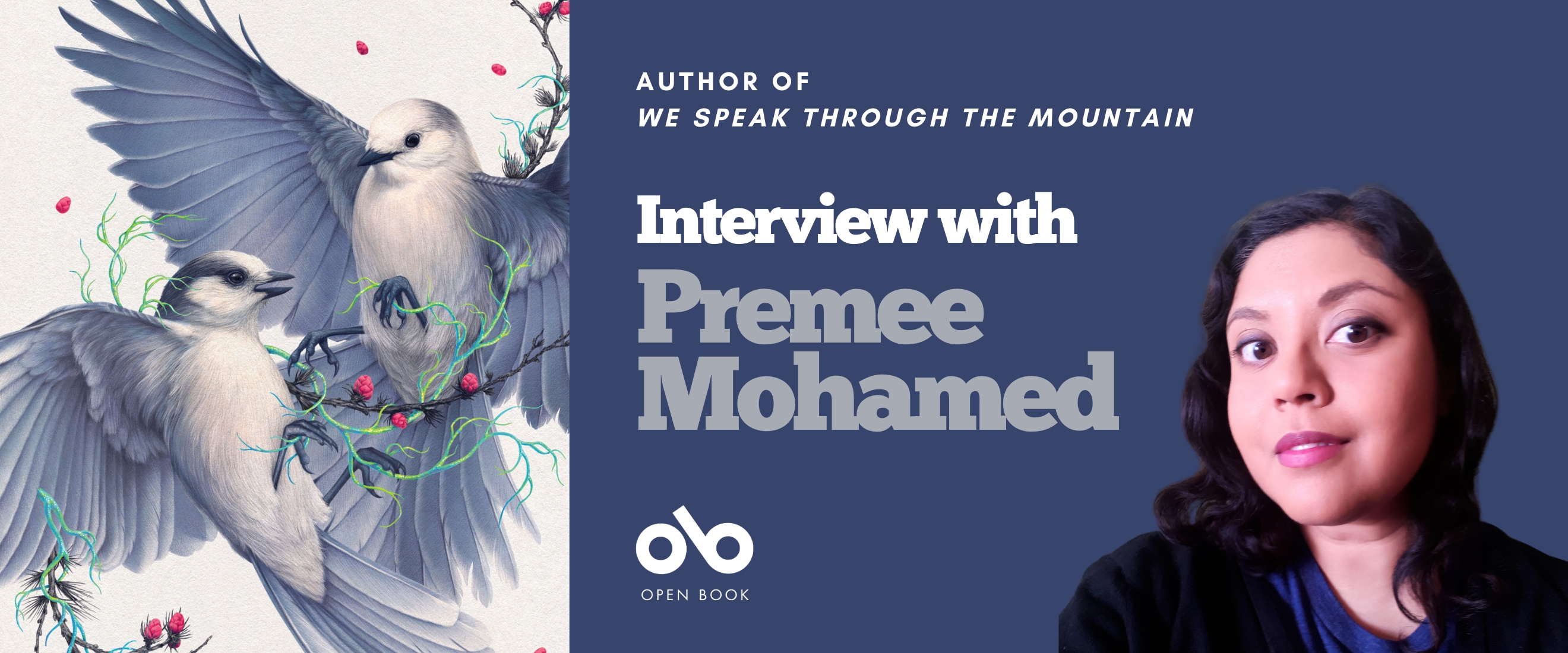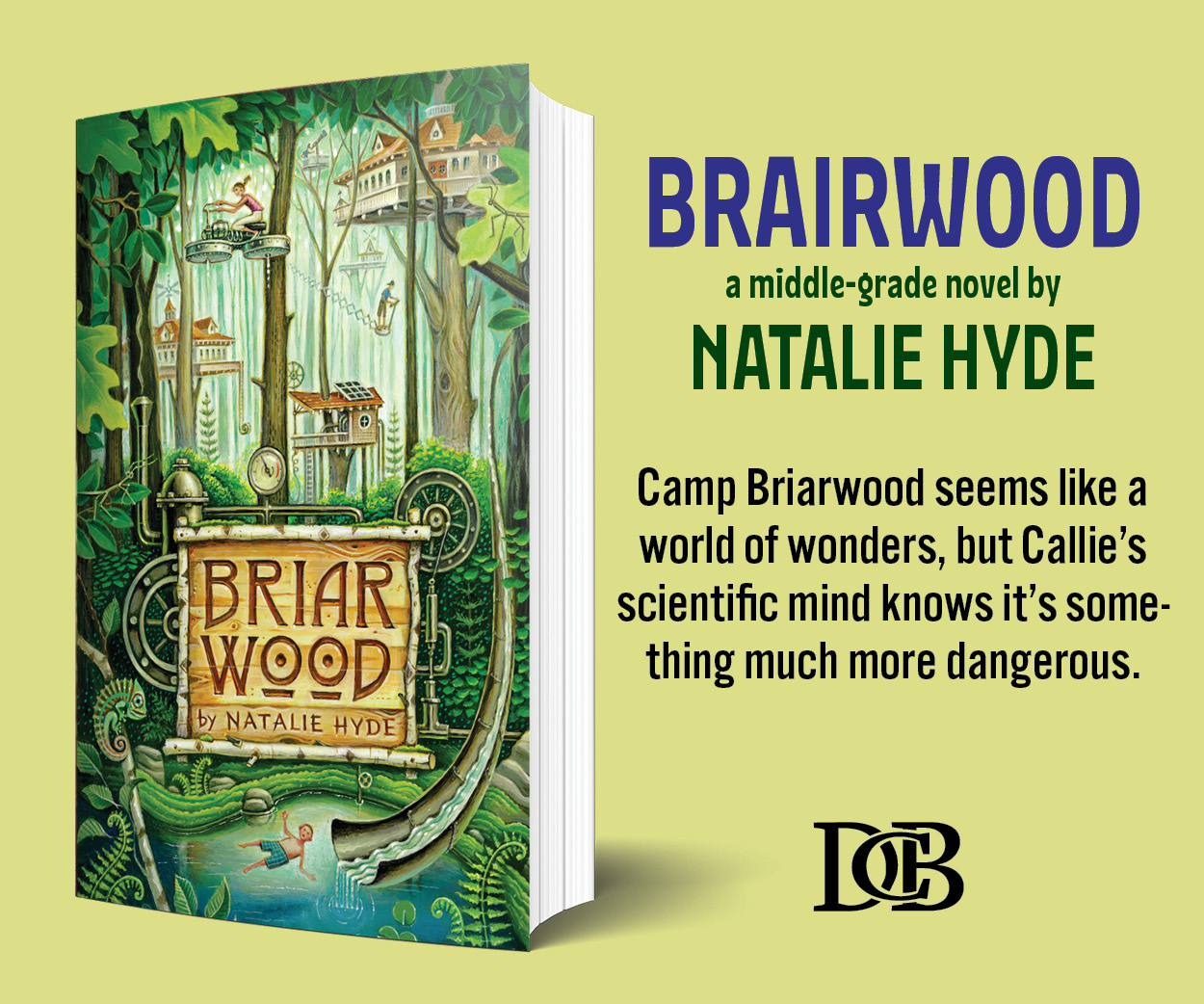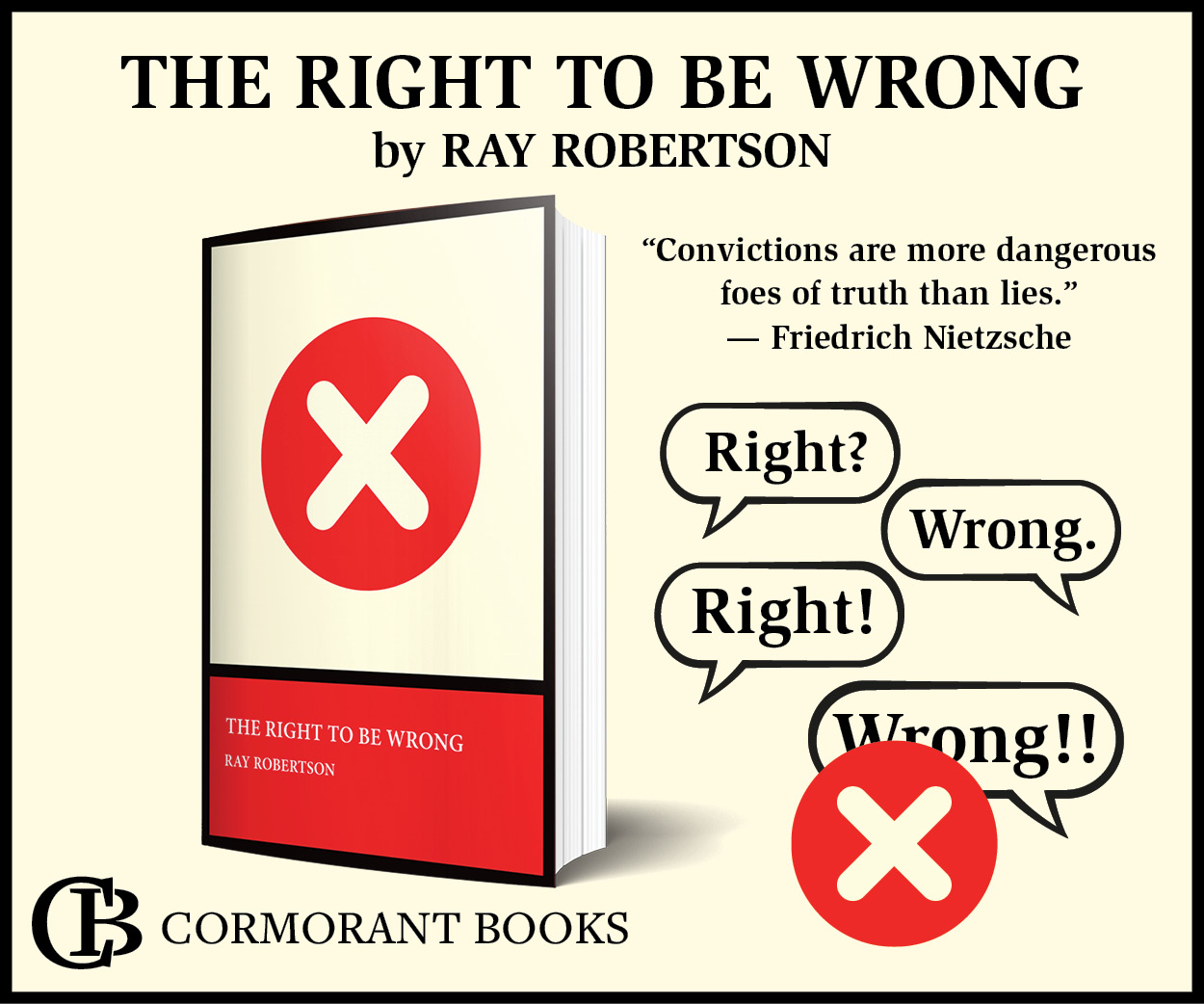Premee Mohamed Returns With Another Spellbinding Novel
After winning a raft of awards for her previous novel, The Annual Migration of Clouds, author Premee Mohamed returns with an exploration of humanity and survival set against the backdrop of Alberta's Rocky Mountains.
In We Speak Through the Mountain (ECW Press), we follow 19-year-old Reid Graham, who fights her way through the climate-ravaged Rockies to reach the utopian Howse University. She seeks life in one of the few "domes" that remain to keep what is left of society, but all is not what it seems, and the powers that be have their own selfish agenda that excludes the outer world. It's up to Reid to decide what matters most, whether she should return home, and what fate lies in store for a species that will not learn from their mistakes.
It's a powerful novel that adds to the author's reputation as one of the most skillful and inventive speculative fiction authors in the game, and we're very happy to share this Going Pros & Cons Interview with the author here:
Open Book:
My first big writing/publishing victory and how I celebrated:
Premee Mohamed:
I had had short stories published for a few years and didn't celebrate any of them, not even the first one, I guess because there seemed like so many fiddly little steps (acceptance email, actual contract, edits, galleys, the wait between emails, the eventual publication of the story, receiving contributor copies, getting paid, etc) that I never felt like there was an emotionally or logically satisfying point at which to celebrate. But I did celebrate my first book deal, because the book in question had been on submission for quite a while — nearly a year — and I was pretty much getting ready to send my agent the "Let's withdraw that one and figure out something else" email when we got the offer. And book deal (indeed, two-book deal) certainly seemed like a bigger victory than short story sale. I baked a cake and scribbled something incoherent on it with frosting, and spent a couple of days eating processed sugar for every meal. I don't know, it's kind of a blur now.
OB:
My worst public reading or event experience:
PM:
I think it might be a tie? In 2018 I attended Scintillation, a tiny little con in Montreal, and was scheduled to have a public reading with fellow author Kate Heartfield — we even coordinated which stories we would read (from the issue of Lackington's that we were both in). Nobody showed. After about 15 increasingly embarrassing minutes, we agreed that we would pretend it never happened, and we packed up and quietly slunk into one of the adjoining rooms to watch the panel that was happening there. And then in 2022 I was invited to be a guest at Hal-Con in Halifax, and had something like — I think six, maybe, signing sessions? They had invited three authors (me, John Scalzi, and TJ Klune — both of whom were incredibly lovely and friendly) but they only had two signing tables, so they split us up depending on our events, and I ended up next to TJ for every signing shift. So of course I'm a nobody with no one coming to my table, and he's got readers lined up to the wall, then through the lobby, then outside the convention center and onto the sidewalk. I sat there alone for six whole shifts goofing off on my phone and occasionally getting up to take a photo of him and some overwhelmed, sobbing fan who dressed up as a character or whatever, wailing "Your books changed my life, TJ!"
OB:
The advice I would give someone trying to get a book published for the first time:
PM:
This is advice I have to give people constantly as the writer-in-residence at the Edmonton Public Library, but "Do your homework" is number one! I don't just mean on the publishing process, I mean people need to develop a specific skill — thinking of their book as a saleable product rather than a large-ish lump of their soul or ego or whatever — and the only way you can develop a skill is to work at it. I keep begging people to read more in their genre, sign up for author and industry newsletters, take notes, subscribe to the podcasts and blogs that give you information about publishing, stay on top of things. The craft of writing has been about the same since we started scrawling on cave walls, but the business of publishing changes all the time.
Your CanLit News
Subscribe to Open Book’s newsletter to get local book events, literary content, writing tips, and more in your inbox
OB:
My favourite part of the publishing process:
PM:
Honestly, getting the box of contributor copies never gets old! Being a book nerd, I think I like that more than launch day or whatever I'm supposed to enjoy the most. Launching a book feels intangible, ephemeral, fleeting, like a birthday. But cracking open the box and getting that booky, inky smell is golden. (We are leaving out the fact that I don't know what to do with all these contributor copies and they are starting to pile up somewhat in the basement.)
OB:
What I think about literary awards:
PM:
I think my opinion on these has shifted somewhat since I started getting published? (Most of my previous opinion of literary awards came from Martin Amis' 'The Information,' where a Noted Horrible Author is up for the 'Profundity Requital,' a made-up prize. They don't even tell you how much the prize is; they just say it's 'ridiculous' and you get it every year. And the thinking in the book is, Of course it's going to a terrible author. Of course it is. People have no taste and they cannot tell what's profound.) It was a little while before I realized that literary fiction prizes (the Gillers, etc) tend to come with large and impressive cheques, and speculative fiction prizes (the Nebulas, etc) tend to come instead with large and impressive statues. "So just checking," I remember texting a friend when I was nominated for a Nebula in 2022, "we don't get both?" She wrote back something like, "No cheque. Yes block of lucite." Hmmmm. Having won a few now, my opinion is that they look very nice on a shelf, but I'm not sure they've moved the needle on sales, reviews, future deals, or indeed, the respect of the literary community. I think probably the thing to do here is switch immediately to writing serious literary fiction and see if I can win one of the ones that comes with a cheque, then re-evaluate my stance on them.
OB:
The things I need at/in my writing space:
PM:
My writing space has absolutely sclerotized over the course of the ongoing pandemic; I used to be able to write almost anywhere, and now I'm all "No, no, I'm a hermit crab, I need my shell, wehhh." So I need my giant sippy cup (24 ounces) for water, then a mug for tea (must have both, can't write without both); I need my incredibly loud clacky mechanical keyboard (I can't draft on my laptop keyboard or, God forbid, the So-Two-Dimensional-It's-Nearly-Flat-Stanley bluetooth keyboard that pairs to my phone); I need my soft wireless headphones (not earbuds, no wires either) and I need my two-monitor setup (document on the left, outline on the right). Also non-optional: stack of notebooks at various stages of use, visual timers, fountain pens, ink, index cards, and cat bed (to corral the cat when he starts trying to help the process).
______________________________________________
Premee Mohamed is a Nebula-, World Fantasy–, and Aurora Award–winning Indo-Caribbean scientist and speculative fiction author based in Edmonton, Alberta. She is the author of the Beneath the Rising series of novels as well as several novellas, and her short fiction has appeared in many venues.





